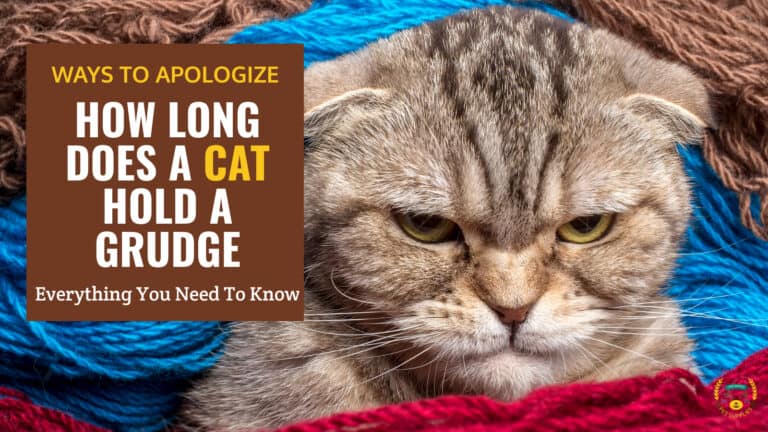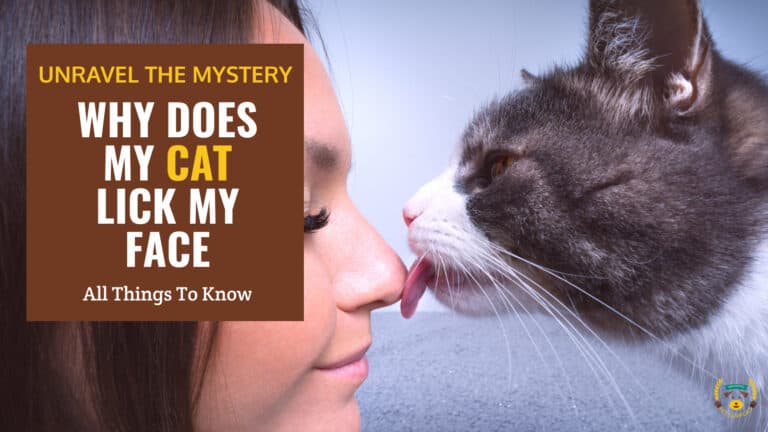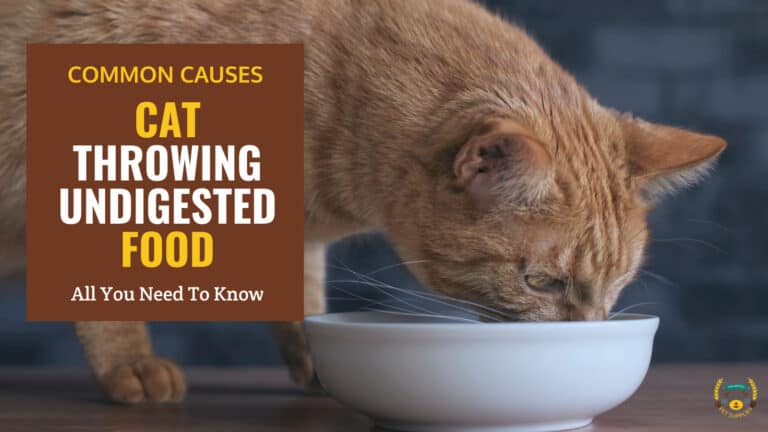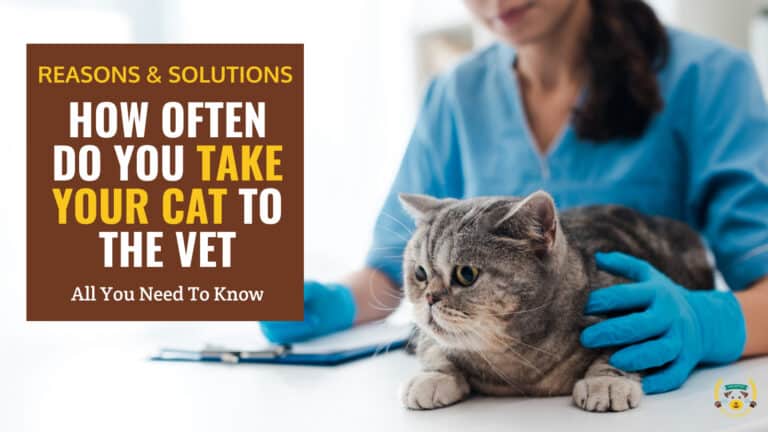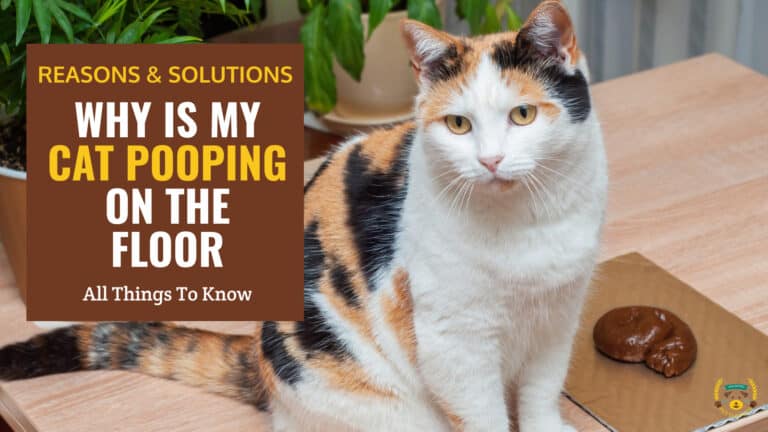How To Care For A Pregnant Cat. Tips and Advice
Last updated: January 11, 2024
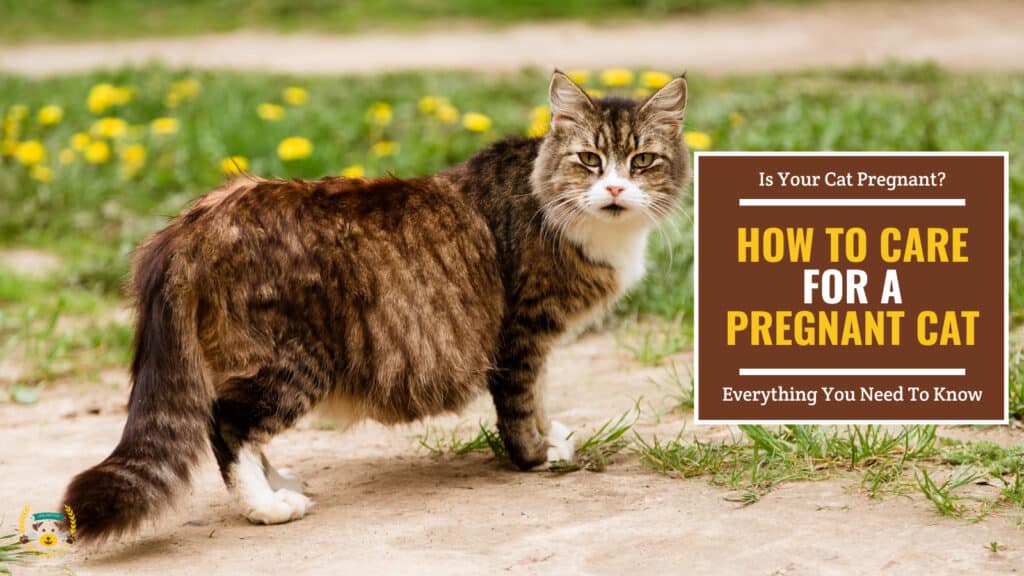
Summary
- A pregnant cat needs more food and water than usual.
- Create a comfortable and safe place for your pregnant cat to sleep and relax.
- When your cat is about to give birth, create a quiet and safe space for her to deliver her kittens. Make sure you have everything you need to care for the kittens, such as kitten formula, a bottle, a heating pad, and soft blankets.
- Give your pregnant cat plenty of love and attention.
- Keep her indoors and give her plenty of toys to keep her occupied.
- Make sure she has regular veterinary check-ups, especially during the last few weeks of her pregnancy.
I didn't know my cat was pregnant until I noticed that its belly was getting bigger. Due to my lack of knowledge of pregnant cats, and as a result, I dismissed indications that my cat was pregnant. Initially, I believed that my cat was becoming obese or ill. Because I do not know which one it is, I contacted my veterinarian to inspect my cat to identify what may be wrong. However, my veterinarian determined that my cat was pregnant and gave me tips on how to care for it, which I will share with you in this post.
Therefore, continue reading to learn more.
Care Between A Normal Cat And A Pregnant Cat
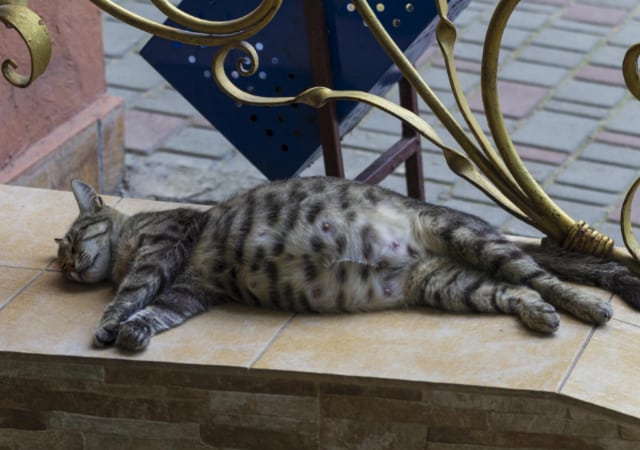
Depending on how knowledgeable you are about cats, caring for a cat as a new cat owner will not be that demanding when compared to a pregnant one. For example, your cat may only need good health care, enough food, regular feedings, exercise, and love to live a healthy life.
On the other hand, a pregnant cat will need more help from its owner to give birth to healthy kittens. Due to their independence, cats can care for themselves during their pregnancies until it is time to give birth.
However, when a pregnant cat lives with you, the responsibility is restricted to the care you provide. So, during this time, the type of food, the schedule for feeding, the litter box, and a safe and pleasant place to be will be very important.
How To Identify If Your Cat Is Pregnant Or Not
If you think your cat is pregnant, there are a few things you can do at home to confirm your suspicions. First, check if your cat's nipples are enlarged and pinkish. You may also notice that your cat is more affectionate than usual and is nesting or looking for a quiet place to sleep. Her appetite may also change, and she may be more vocal than normal.
Your cat will have a softer and rounder abdomen. Her abdomen may also begin to protrude further, and she may begin to pee and defecate more often. If you observe any of these symptoms, you should consult a veterinarian immediately. Your veterinarian will be able to detect kittens inside the uterus and estimate the duration of the pregnancy. In addition, they may guide you on how to care for your pregnant cat as well as what to expect during the pregnancy and birth.
You may also like: How to tell if a cat still has a kitten inside.
Pregnancy: Veterinary Care And Advice For A Pregnant Cat
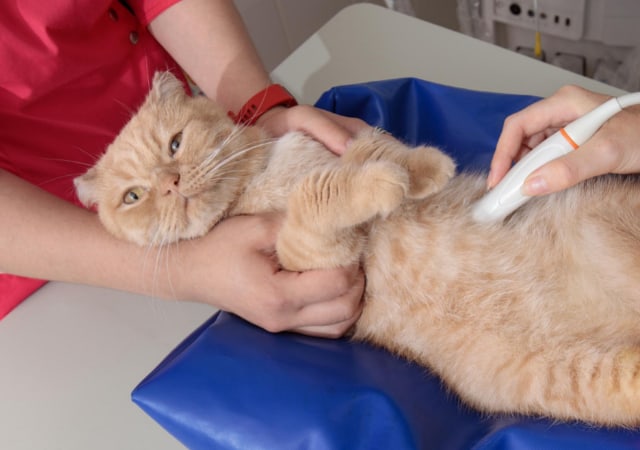
Your veterinarian will be able to determine whether or not your cat is pregnant. During this appointment, your vet will tell you how to take care of a pregnant cat, including what to do and what not to do. Sometimes, your cat may be experiencing stomach discomfort due to worms.
Ensure your cat's vaccinations are up to date. This is crucial for her and her kittens' health. Your veterinarian should be able to decide the best treatment, as it is essential not to vaccinate a pregnant cat to prevent abnormalities in the kittens.
Depending on their age, weight, and overall health, a cat's pregnancy can last up to nine weeks. Consequently, it is essential to understand what to do at home to ensure that your cat gives birth safely.
How To Take Care Of A Pregnant Cat At Home
When a cat is pregnant, the usual routine of feedings, litter changes, and vet check-ups may need to be tweaked a bit to account for extra energy and added weight. Here are some tips to help take care of your pregnant cat:
- Give her plenty of fresh water and food. A pregnant cat needs more food and water than usual. Make sure her food and water bowls are always full. If your cat has a sensitive stomach try any one of the cat foods listed on this page.
- Create a comfortable place for her to sleep. Consider setting up a bed or blanket in a quiet, safe place.
- Keep her litter box clean. A pregnant cat's sense of smell is heightened, so a dirty litter box can be very off-putting. Be sure to scoop it out regularly and change the litter completely every few days.
- Give her plenty of love and attention. Pregnant cats can become anxious and stressed, so providing them with love and reassurance can help them stay calm.
- Make sure the cat has plenty of fresh, clean air to breathe.
- Keep your cat indoors and give her plenty of toys to keep her occupied.
- Provide her with a screened-in or outdoor area to relax in.
- Make sure your cat has regular veterinary check-ups, especially during the last few weeks of her pregnancy.
You may find this challenging, but it is essential that you follow these guidelines to guarantee that your cat has no problem carrying and giving birth to her kitten.
As your pregnant cat's adventurous spirit might still yearn for some outdoor exploration, consider providing her with a safe and comfortable harness or collar for supervised outings. Choosing the right gear is crucial, and our guide to cat collars dives into various options. Remember, even pregnant cats deserve some fresh air and sunshine, but prioritizing their safety is key.
Ways to Feed a Pregnant Cat
If you are feeding your pregnant cat a balanced diet, keep a few things in mind. A pregnant cat needs more protein than she does before she is pregnant. She also needs more phosphorus and calcium. The best way to give your cat the right diet is to feed her high-quality cat food that has those nutrients in it. Talk to your veterinarian about what is best for your cat.
Cat’s Environment During Pregnancy
As a pregnant cat's body changes to make room for her growing babies, she may be stressed by things in her environment. For example, her increasing size may make it difficult for her to move around, and she may become more sensitive to changes in temperature.
She may also have difficulty reaching her food and water bowls or her litter box. If you notice your pregnant cat has difficulty with any of these things, try to make her environment as comfortable as possible. For example, you can move her food and water bowls to a lower level or place her litter box in a more accessible location. You can also try to keep the temperature in your home consistent and provide her with fresh air to breathe. If you are still in the market for a new litter box, here's a list of the top litters for cats.
Your pregnant cat will have an easier time giving birth if the food, environment, and other things she needs are good. But it's important to know when your cat will give birth and make plans for that.
How To Prepare For Your Cat To Give Birth
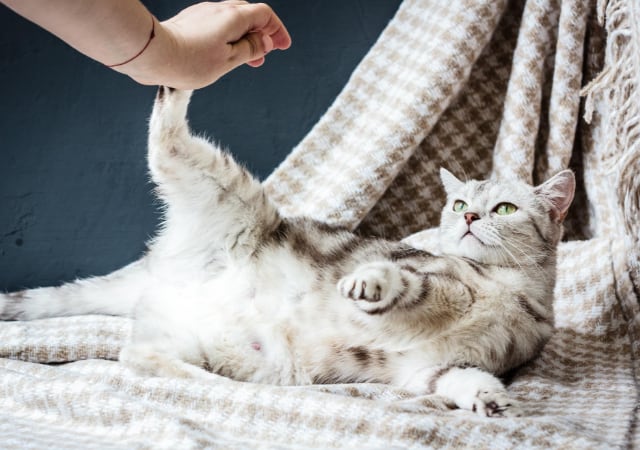
When your cat is about to give birth, there are a few things you can do to be ready. First, create a quiet, safe space for her to deliver her kittens. This could be a spare room, a closet, or even a large cardboard box. Line the space with towels or blankets to create a soft, comfortable surface for her to lie on.
Next, make sure you have everything you need to care for the kittens. This includes kitten formula, a bottle, and a small bowl for feeding; a heating pad to keep them warm; and some soft, washable blankets for them to sleep in. It's also a good idea to have a pair of gloves and some cotton balls on hand, in case you need to help your cat during the delivery.
Finally, be sure to have your vet's phone number handy in case you have any questions or concerns during the delivery.
Conclusion
Assuming you have followed all of the steps in this guide on how to care for a pregnant cat, the final step is the birth itself. Your vet can help you determine when your cat is going to give birth to help you prepare for it.
However, your cat is likely to give birth anywhere in your home. Therefore, have some old towels on hand to clean up any mess. Once the kittens are born, the mother cat will instinctively know how to care for them, so all you need to do is make sure she has food and water and a clean litter box. Congratulations on the new additions to your family!


